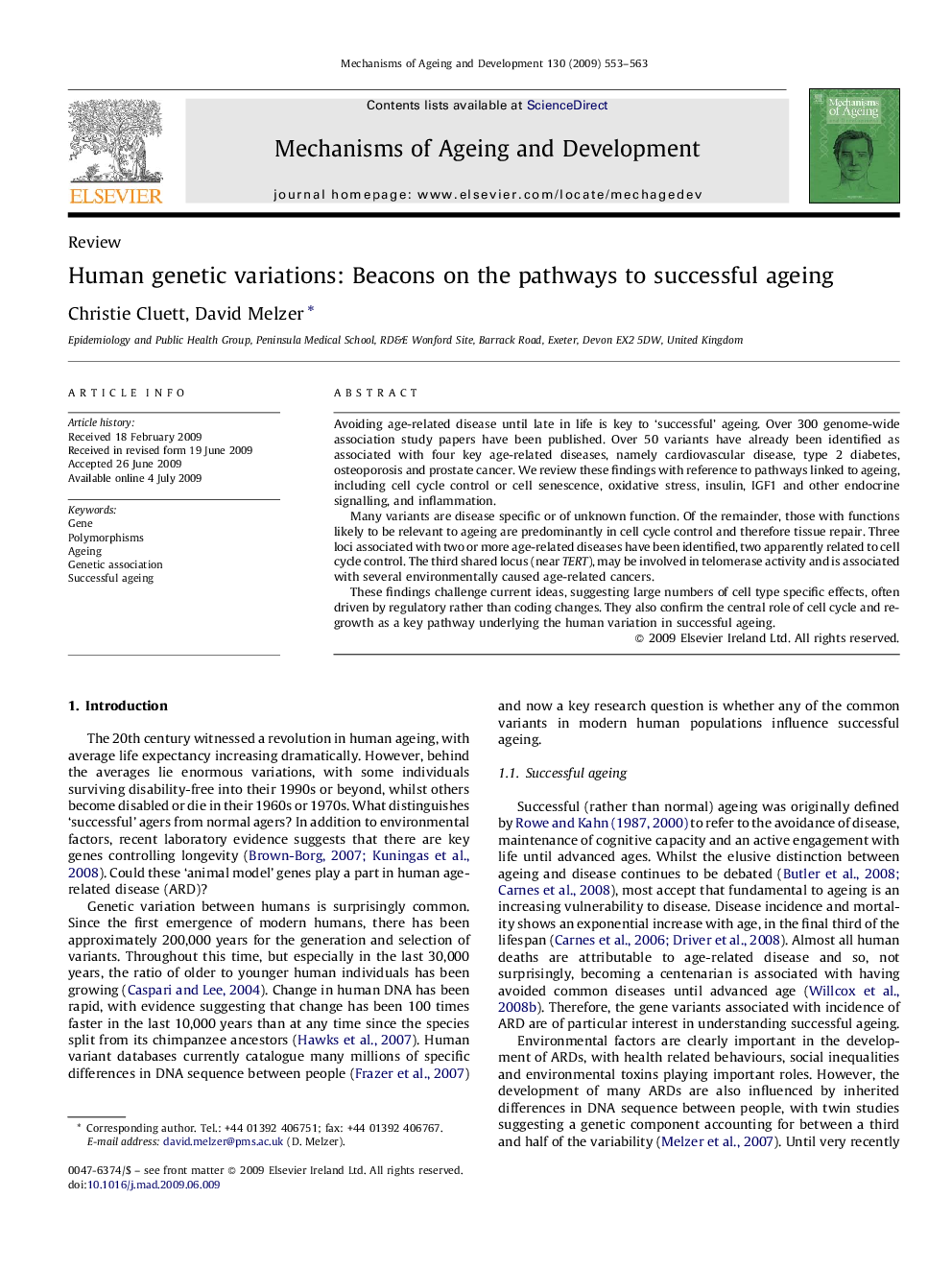| Article ID | Journal | Published Year | Pages | File Type |
|---|---|---|---|---|
| 1919450 | Mechanisms of Ageing and Development | 2009 | 11 Pages |
Avoiding age-related disease until late in life is key to ‘successful’ ageing. Over 300 genome-wide association study papers have been published. Over 50 variants have already been identified as associated with four key age-related diseases, namely cardiovascular disease, type 2 diabetes, osteoporosis and prostate cancer. We review these findings with reference to pathways linked to ageing, including cell cycle control or cell senescence, oxidative stress, insulin, IGF1 and other endocrine signalling, and inflammation.Many variants are disease specific or of unknown function. Of the remainder, those with functions likely to be relevant to ageing are predominantly in cell cycle control and therefore tissue repair. Three loci associated with two or more age-related diseases have been identified, two apparently related to cell cycle control. The third shared locus (near TERT), may be involved in telomerase activity and is associated with several environmentally caused age-related cancers.These findings challenge current ideas, suggesting large numbers of cell type specific effects, often driven by regulatory rather than coding changes. They also confirm the central role of cell cycle and re-growth as a key pathway underlying the human variation in successful ageing.
